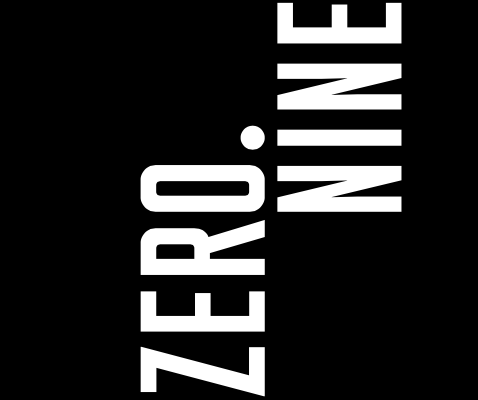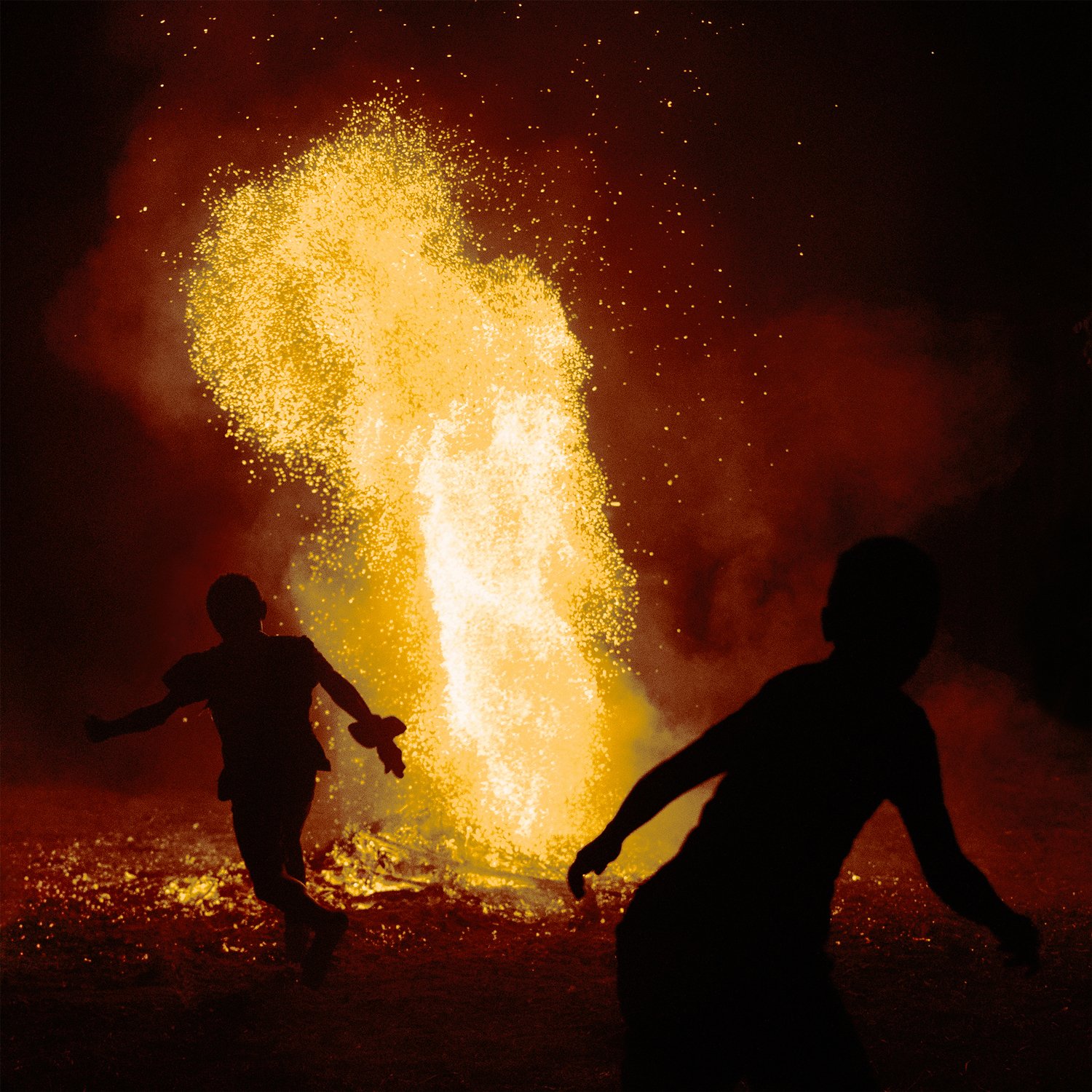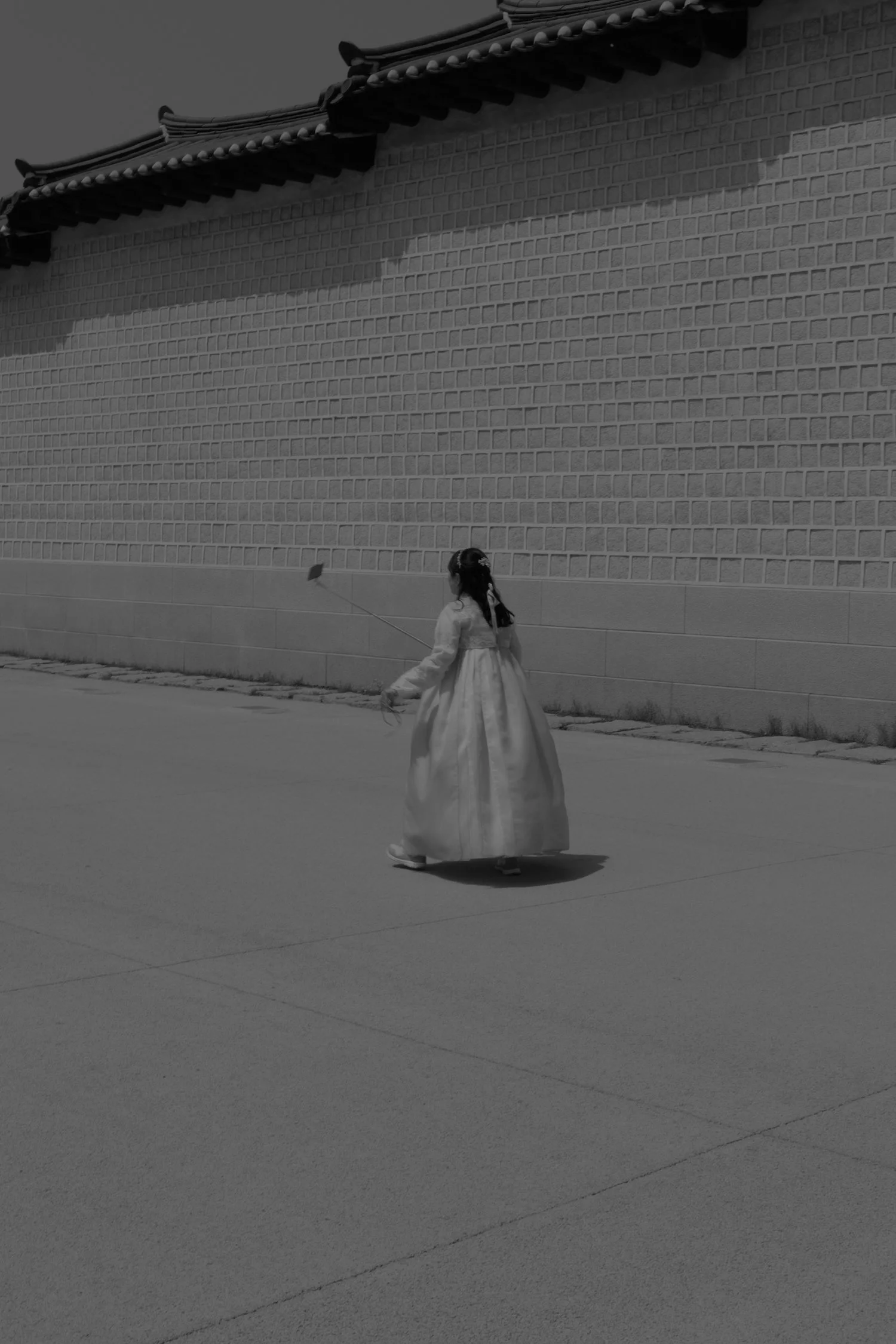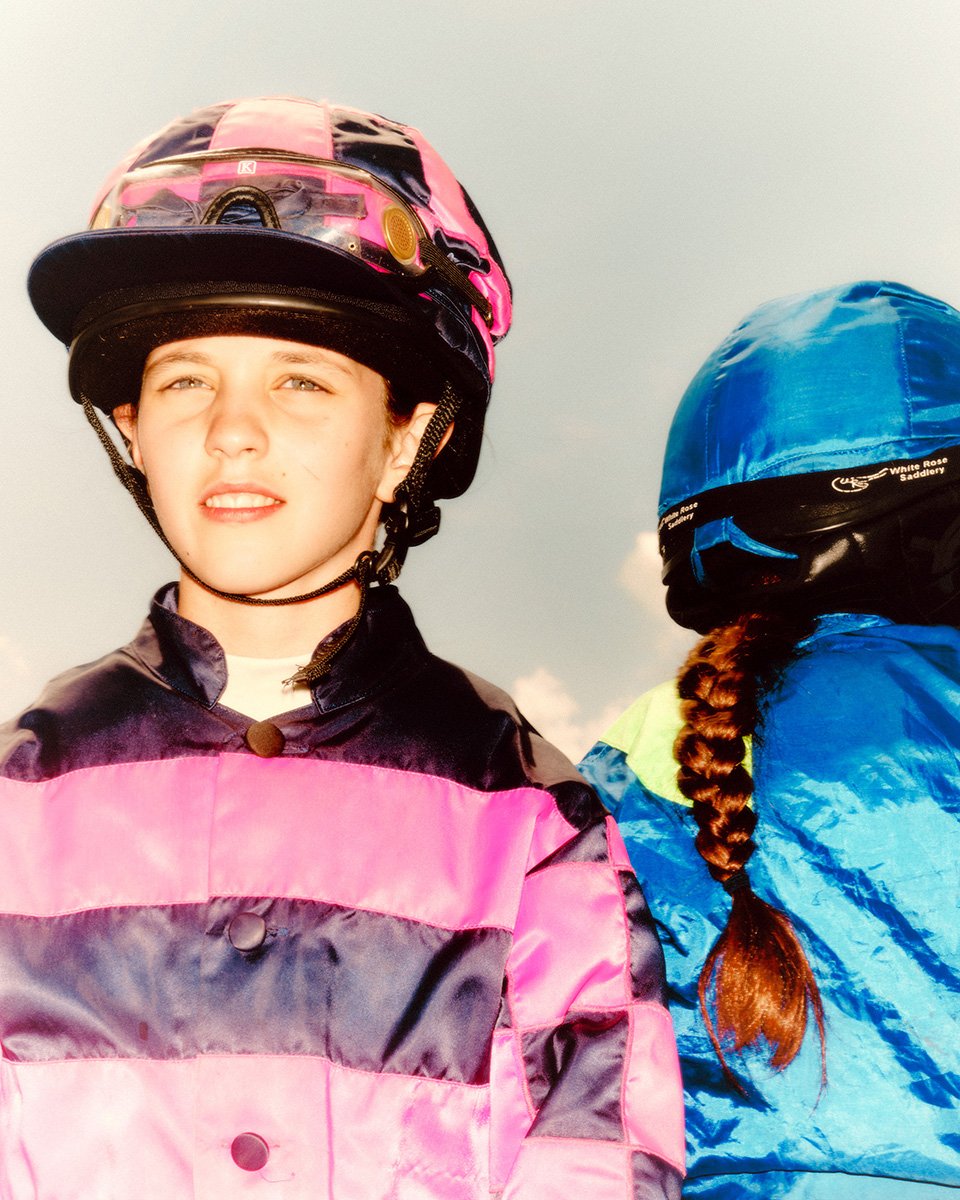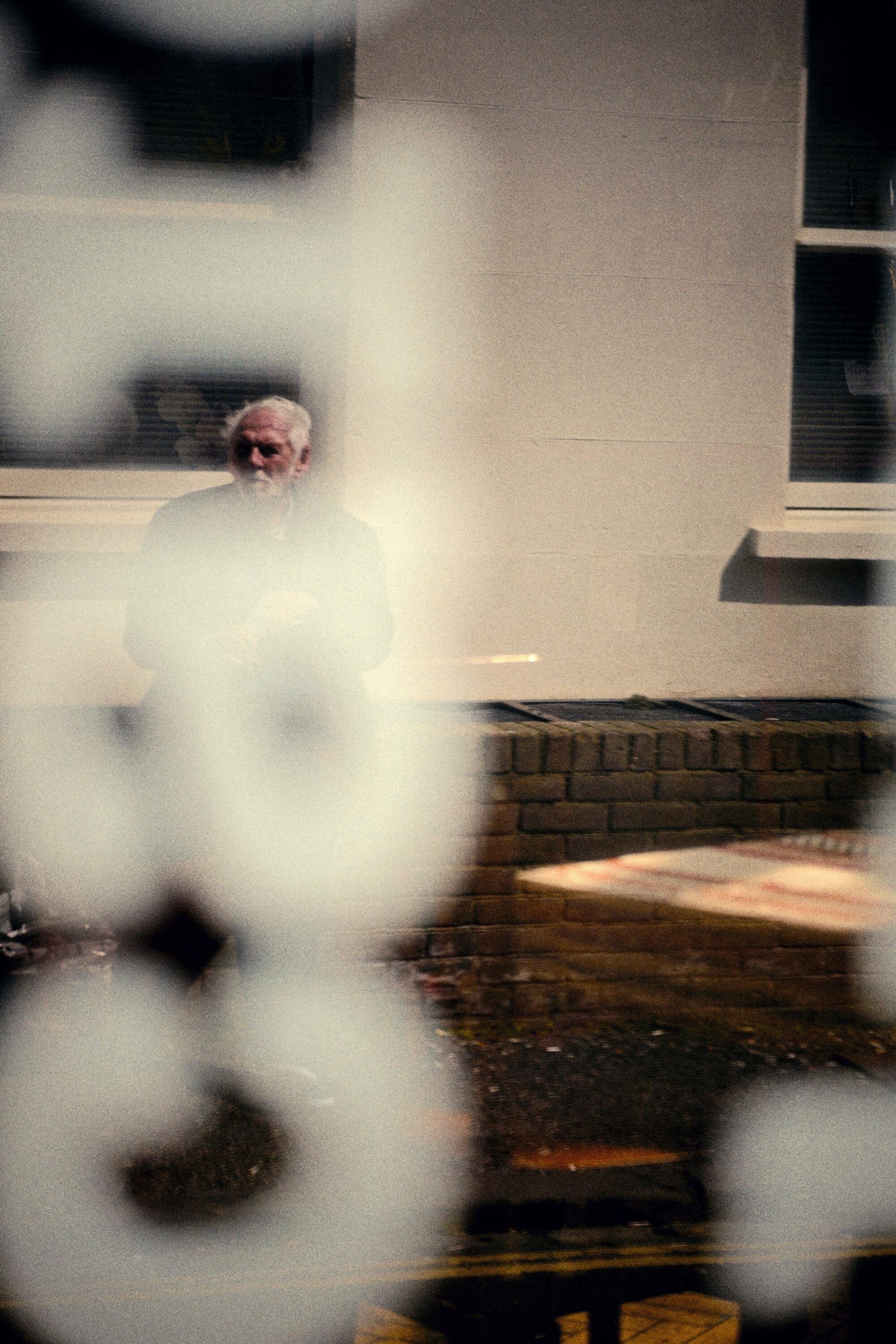Breaking the Cycle
We spoke to Jordan Stephens, musician, actor, writer and creative about masculinity, the difficulties of being a public figure for mental health, and the impact of generational trauma on the creation of his new personal project.
Words Holly Wyche Photography JC Verona Make up Elaine Lynskey Wardrobe Kate BarbourI sit down with Jordan at the end of the day of shooting. The set has been dismantled and he’s taken off the smeared make-up and glamorous Elizabethan collar he wore for the final shots, instead now wearing a hat that reads “goodboy”. We’ve been chatting throughout the day while shooting, so sitting opposite Jordan with a notebook and my phone recording I think feels slightly odd and formal for the both of us. Comparatively, earlier in the day after finding out my age, he asks me with genuine concern whether I’ve ever seen the 90’s film Space Jam. After admitting it’s a little bit before my time, Jordan, at this point sitting on a stool as the cameras are set up and final make-up is applied, begins to tell me how much he adores the film and how much a part of his childhood it was. His passion and sincerity is infectious, and extends into almost everything he speaks about, filling the room with this omnipresent earnestness that comes out whether he’s talking about feminist articles he’s recently read, how much he loves the canals near our studio, or Space Jam. This is also apparent immediately when speaking about his newest project.
“After Rizzle Kicks, I suppose I've made music under various aliases for a few years. I changed my rap name like four different times. But yeah, in terms of major projects I kind of scrapped a couple that I could have, and maybe should have, released. A second Wildhood record, I had a whole rap album. But I suppose it came to a point where I was doing so many different things in my life I felt like it was time for me to try and center everything along one central theme and that is supposedly just me and my name, Jordan Stephens.”
For most of the day his mind jumps between points and ideas, a lot of the time beginning his next thought before he’s even finished expressing the current one. It’s a testament to his capacity for sincere reflection as this consistent hopscotch between ideas doesn’t come from a lack of focus or care, but an evident and deep passion for everything he talks about. It’s almost like he can’t wait to share what he’s thought of and will interrupt only himself to share it.
"I have expectations, I used to be a pop star for fucks sake.”
“I definitely made P.I.G. at a point in my life where I was…”
Jordan tails off.
“It's very difficult if you create from a place of like, I don't suppose pain or chaos.
When you're more harmonious, it's really tough to access that same space. I know a lot of people are attached to the idea that they create better when they're fucked up.”
Yeah, it's sort of the tortured artist ideal?
“A little bit. Yeah, so I legitimately had that kind of writer's block when I first got sober for about a year...”
“When you're more harmonious, it's really tough to access that same space. I know a lot of people are attached to the idea that they create better when they're fucked up.”
“It's a lot. It's really, like, really hard. Because the voices in your head that are doubtful and critical are initially a lot louder when you're sober. I need to remember that like I'm actually at a point now where I do create and don't question where it comes from. I have made things in my sobriety that I'm proud of that I think stand up against stand up well [against] the stuff I made fucked up, but I definitely don't feel that part of myself I accessed fucked up is as strong as I used to think.”
That’s really interesting because it’s a big thing you’ve talked about, you spoke about it in your TED Talk. It was the quote unquote “molten lava flaming volcano pit of expectation”, and being sober, it must be a harder thing to not worry about.
“Yeah I can’t remember... I don't think I was sober... no I wasn’t sober when I made that TED talk.”
Jordan gave a Ted talk in 2017 titled Everyone Loves an Underdog, where he spoke about his relationship to stages and the immense pressure of expectation throughout his life. He spoke with the same sincerity that he does now, however having watched it before I met Jordan, I was immediately struck by how much more at ease he is now. Not only with sharing his ideas, but in himself. He speaks far more calmly but with the same energy that shone through even in a period of his life that he goes on to talk about as challenging.
“I think my only role in this life of mine is almost solely to create a self loving child.”
“But, yes, there is more expectation sober because you'll feel everything and be more sensitive. I think, well, I am more sensitive. And more aware. And I suppose what I used to love about creating when fucked up was I'd be in such a haze that I wouldn't hear the voices that would usually stop me. So now I have to face those voices head on.
But just thinking like in the greater scheme of things it doesn't fucking matter. Like I think with this album, or project whoever the fuck it is. I wanted to release the music because...”
Jordan tails off again.
“I have expectations, I used to be a pop star for fucks sake, you know I overthink this stuff. I compare all this bollocks. But then I thought fuck it and that I'm always gonna release music. I'm always gonna put it out.”
The first song Jordan released that would feature in this project, Son of a gun, came out in May 2020. He then released Wicked in July of this year, with a third single, “Star”, being released on the 4th of October.
Yeah and speaking about this project I wanted to ask something specific. You said it was just the idea of wanting to put music out there under your name, but I was wondering if there was anything that connected it beyond that? Because in the music video for Son of a Gun it features the phrase “Break the Cycle” in your explanation at the end, and “Break the Cycle” is also one of the lyrics of Wicked. And I was wondering if that connected the project as a whole.
“Yeah it’s just where I'm at. So I don’t know if this sounds pretentious or arse-y, but I believe that I create within myself a version of me called ‘Little Jordan’, who is like an entirely pure representation of expression. And he tries to tell me stuff that I don't necessarily pick up on or maybe I do. Or maybe we're in some kind of conflict, and you can hear that sonic-ally. And the ‘Break the Cycle’ thing was part of my process towards self determination, self love, and understanding that a lot of this pain is handed down to us.
I want to centre myself, so then it will sound like I'm wanting people to centre themselves, do you understand what I’m saying? So I think the link between “Son of a Gun” and “Wicked” was “Son of a Gun” was me talking about inter-generational trauma and “Wicked” is that there is still generational trauma, but it’s a step outside that.”
So you say that “Break the Cycle” is essentially about –
“Break the Cycle” was specifically saying that yes, we are burdened with the emotional complexities of our ancestors or parents or wherever else but every time that we are alive, we get an opportunity to make choices that can shift the dynamic or the energy, and sometimes I even go as far as I think my only role in this life of mine is almost solely to create a self loving child, do you know what I mean? Like a child that is empowered enough to understand or feel as though they can validate themselves, move outward.”
He pauses for a moment.
“Because I think my parents have been abused. You know, in different ways, but they've been abused you know. And then now I'm born and enter into this world and have my own ups and downs and it's tough.”
“And that’s the cycle I wanna break. Yeah, especially with men, you see that handed down all the time if you identify love as being entirely independent and dangerous. Unsafe. Then of course, you’re gonna pass that on to a child if you don't do the work.”
Yeah and I think the really impressive thing you've done is that you've not only theoretically recognised that, which you see in a lot of people, but you've also gone out of your way to do things that promote that and actually put yourself out there in terms of not following the same trend of masculinity. Like you were faith in ‘Tucked’, which was incredible. But going from the height of fame and notoriety that you had with Rizzle Kicks… Was it frightening doing it? Like theoretically understanding hyper masculinity and being gutsy enough to actually do things that you would feel ashamed of when you were younger are two different things. You did the brave thing of doing the second.
In the film ‘Tucked’ (2018) Jordan plays a young, queer drag queen. They befriend an 80- year old queen who has recently been diagnosed with a terminal illness. The film explores the friendship between them and their individual relationship to intimacy, masculinity and identity.
“I do remember when I posted about ‘Tucked' on my Instagram – I remember I started to get that... conditioned thing. I remember being like, oh my god, I'm about to really put myself [out there]. But, actually I got support from people close to me and it was really lovely, and the response was cool. Because I think even the manliest men in confidence, admire that freedom to express. I think they all fucking do.”
Yeah, that's really interesting.
“I think really, I think true, divine, masculinity... doesn’t give a fuck about anybody else, it’s grounded, it’s kind of almost... I want to say immovable? Except there should be some fluidity, but it's rooted. It's grounded. And I think you know, a man who's truly secure doesn't care how anyone else expresses themselves. Certainly not how they express themselves.”
And at what point did you start thinking about masculinity in that way. Was it always there for you, or was there a certain point in past 10 years where you began to reflect on how it impacted you?
“I got to the stage where I loved women so much that I kind of lost sight of even if I loved men. And maybe even myself which is wild, you know? But I loved women in positive and toxic ways. I grew up around women, you know a lot of my family are female. Predominantly raised by my mum but my dad was about. And I've always felt more comfortable with women as friends, but then also, when I was in my 20s, when I was in relationships with women, I wasn't great. And a lot of my more toxic conditioning I suppose would come out in my one-on-one. It’s like the second a woman tried to get actually close to me, then regardless of how fucking open minded and pseudo-feminist I was, I would still fall into the same patterns of behaviour that would cause so much harm and damage. And I actually related when the #metoo movement kicked off.”
“Regardless of how fucking open minded and pseudo feminist I was, I would still fall into the same patterns of behaviour that would cause so much harm and damage.”
Yeah and you did that essay in the Guardian.
“Well I wrote that article in the Guardian because I was like “fuck this is me, man.” I mean, obviously, I'm not relating to the more severe cases. You know, of sexual assault. But certainly when people were just doing kind of think pieces on toxic behaviours and shit I was like: “fuck yes, I've done that. I've cheated on my girlfriends before, I've been emotionally neglectful.” I've probably said some horrible stuff. I’ve been abusive, engaged in mutual abuse. But, you know, my responsibility has been with myself.”
Jordan doesn’t once shy away from taking accountability for this. He speaks with remorse for what’s happened, but with a mature, blunt directness that I think few could muster in a personal context, let alone an interview. This doesn’t provide levity to what he’s saying, but reinforces the personal growth that he’s spoken about on multiple occasions.
“And so yeah I thought “fuck I think it's probably good to be honest about this because it's hurting”. I think if a man can acknowledge those cycles of behaviour and attempt to heal them, then the rest comes with it. You have happy partners, you have harmonious interactions. Toxic relationships are definitely two-way, I need to be clear about that. But all you can do as an individual is understand your patterns of behaviour and what might have caused that and have to change in the future.”
What do you mean by two-way – in terms of both parties?
“I just think it would be... I think I'm a little bit cautious nowadays with placing like enormous blame solely on men. I actually think one of the scarier shifts in culture is this complete totality in acceptance of how we talk about men as if men are awful. And I feel like I might have even been part of that shift a bit because I thought it was important to talk about toxic masculinity, and I do think that there needs to be spaces where men are held accountable for their shit. Starting with myself. I really think those are important, but I have to be honest and say that I am a little bit apprehensive about...”
He's careful about how he words his next thought.
“You know, when men are trash first came down as a hashtag I was here for it like yeah you can be pissed off, but then it didn’t go away. And then it's kind of like… “Kill all men”, and then, “men are toxic”.
I don't know… Like I just went to the wake for my Uncle Carl, who died at 90 years old, came over to this country on the Windrush. And most of the eulogies are from women who have been raised by this man. Who fucking adore him. He’d had his wife Delma for 50 plus years. He educated them more during the summer, he ensured that they all felt secure and happy and safe, and I just think we shouldn't we shouldn't forget that there are some incredibly positive, divine, grounded, loving men in the world. And I really don't want to deflect from the issues, but I feel like sometimes I worry that those stories get lost. And also positive reinforcement is arguably one of the more successful ways of creating a kind of space anyway.”
"The emotional world doesn't give a fuck about the material world and things you run from will catch up with you.”
Jordan then went on to talk about the relationship to his body that a masculine society gave him and how he believes it to effect all men, bleeding specifically into casual sex culture. He talks overtly about his part in that culture during his popstar days, and the validation that sourced for him. Jordan speaks about this not with any tint of chauvinism but once again regret. Regret for the both for the effect it has on others but also for his historical low self worth that created that drive.
This is sort of like the question I asked before, but when did you start realizing all this for yourself.
“When I broke. When I broke as a person. Like, I literally collapsed as a human being when I was 26. And everything I've been running away from caught up with me. It was from one heartbreak [to another]. I cheated on the girl I was with. I told her and it just created this fucking hole. This... like... black hole, man. And we ended up getting back with each other but it was after about half a year. It was the most pain I've ever been in my life and so I stopped drinking. That was when I went sober. It just paused me to reflect. The thing is, I think people have to make mistakes. You have to learn through experience, but the emotional world doesn't give a fuck about the material world and things you run from will catch up with you. That's just a fact. It's the absolute truth, you could catch up with you when you're 80 you know. So yeah, when I started reflecting was when I couldn't not. When I couldn't avoid it.”
And that must have been around like 2016 then when you started #IAMWHOLE
“It was just after that.”
Right, okay.
#IAMWHOLE is a mental health campaign Jordan created that’s “designed to encourage people to speak openly and honestly about how they feel, without any fear of being seen as weird or weak”. This campaign has reached a level of national notoriety that it was mentioned in parliament, with the “Music 4 Mental Health” concert in 2018 being greatly successful.
“Yeah, I was just after that. #IAMWHOLE was always kind of a mistake, I didn't mean to start a mental health campaign but I was writing songs at the time about feeling depressed, definitely. Yeah, but I was so wasted.”
It must have been really difficult to simultaneously be a spokesperson for mental health while dealing with your own trauma.
“Yeah, that has been awful. Mental. It was a huge time and people will be asking me to guide them and I'd be like, “dude, I'm in like triple therapy. I don't understand.” Yeah it was a big pressure. I feel more able now knowing that I’ve survived what I’ve survived but still you know it's an ongoing battle.”
It's amazing that you’re doing it though. And it's been a massive success. But it must be hard to have it viewed as a success to a certain degree though. It's an intimate thing, from personal experience of mental health difficulties. It's a very personal thing to have to broadcast, and being viewed as a success must be a pressure.
“Listen, the mental health world is... I don’t know man. I definitely seem to have a little bit of a block of it defining me but I'll always speak about what I feel like. I think it's just it's another word, There's lots of people in mental health, there's some people for who it's their career and shit like I don't know. I just talk about what I think and feel and if it feels right to me at a time, I'll do it.”
Thank you so much.
To end off I ask Jordan lightheartedly that if he could work with any artist, living or dead, who would he pick. He then deliberates over this question far longer than anything else I’d asked today. Jordan goes quiet, looking around and thinking to himself while muttering. “Living or dead... Living or dead...” he’s evidently taking this question as seriously as every other one I’d asked today. After about 40 to 50 seconds of quiet thought, his shoulders drop and with immediate and absolute certainty he says “Oh no – Stevie Wonder”. I think this made me realize that Jordan is one of the most reflective people I’d ever met. Every thought or opinion, no matter their relative importance, seems to receive the same care and contemplation so that Jordan can work out how he certainly feels, instead of just throwing out his first thought as an answer.
I think that’s why this question took longer to answer than any other, because unlike everything else I asked about. Expectation, masculinity, mental health. He hadn’t spent the past 5 years reflecting on it.
His new project, (whatever form it might end up taking), will be released around November and will follow on from his first solo EP, P.I.G.
About Jordan
Jordan’s newest single, “Star”, was just released on the 4th of October, following on from the release of “Wicked” this summer. He describes the song as “about our desire to be seen. Our need to find love in whatever space we can, even if that’s infamy.”
Watch the music video for “Star”– the song is also available to stream.
You can listen to his music on Spotify and for updates follow him on Instagram
